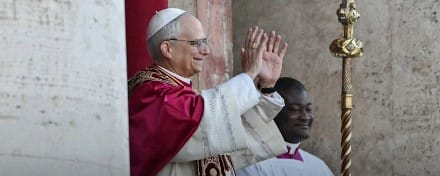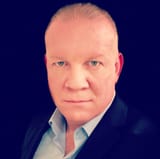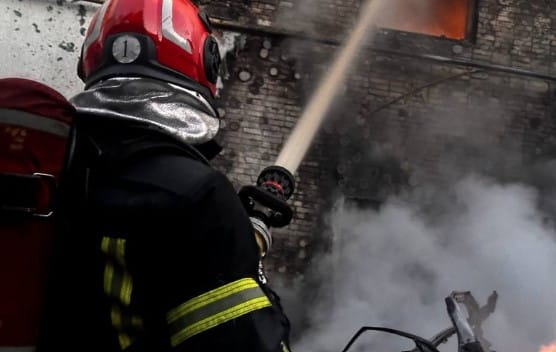Pope Leo XIV: The First American Pontiff and His Global Significance

Introduction
On May 8, 2025, the white smoke rose above the Sistine Chapel, signaling to the world that the College of Cardinals had chosen a new leader for the world’s 1.3 billion Catholics. The man who emerged onto the balcony of St. Peter’s Basilica, introduced with the historic words “Habemus Papam!” was Cardinal Robert Francis Prevost, an Augustinian friar, canon lawyer, and former missionary bishop, who took the name Pope Leo XIV. As the first American-born pope and the first from the Augustinian order, Leo XIV’s election marks a historic moment for the Roman Catholic Church. His unique background-rooted in North America, shaped by decades of service in Latin America, and seasoned by high-level Vatican experience-positions him to guide the Church through a period of profound internal and external challenges.
This report explores Pope Leo XIV’s biography, the context and significance of his election, the issues he inherits, his theological and pastoral orientation, and the global expectations for his papacy.
1. Biography of Pope Leo XIV
1.1 Early Life and Education
Robert Francis Prevost was born on September 14, 1955, in Chicago, Illinois, into a devout Catholic family of French-Canadian descent. Growing up in the American Midwest, Prevost attended Catholic schools and was deeply influenced by the Augustinian friars at St. Rita of Cascia High School. He entered the Order of St. Augustine (OSA) in 1977, professing solemn vows and committing himself to a life of poverty, chastity, and obedience.
Prevost pursued higher education at Villanova University, the flagship Augustinian institution in the United States, and later at the Catholic Theological Union in Chicago. He earned a doctorate in canon law from the Pontifical University of St. Thomas Aquinas (Angelicum) in Rome, equipping him with expertise in Church governance and ecclesiastical law.
1.2 Missionary and Pastoral Work in Latin America
In the early 1980s, Prevost was sent as a missionary to Peru, where he would spend over two decades serving in some of the country’s most impoverished regions. Fluent in Spanish, he became known for his pastoral sensitivity, commitment to social justice, and efforts to foster reconciliation in communities scarred by violence and poverty. He was appointed Bishop of Chiclayo in 2015, later becoming a naturalized Peruvian citizen-a testament to his deep integration into Latin American society.
1.3 Rise in the Vatican
Prevost’s talents and reputation for bridge-building brought him to the attention of Pope Francis, who in 2023 appointed him Prefect of the Dicastery for Bishops, one of the most influential positions in the Vatican. As Prefect, Prevost oversaw the selection and evaluation of bishops worldwide, gaining a reputation for integrity, transparency, and a willingness to promote diverse voices within the episcopacy. He was made a cardinal by Pope Francis in September 2023.
2. The 2025 Conclave and Election
2.1 The Context
The conclave that elected Leo XIV convened in the shadow of a rapidly changing world and a Catholic Church at a crossroads. The death of Pope Francis, who had led the Church since 2013, left a legacy of reform, outreach to the marginalized, and a shift away from culture-war issues toward a more pastoral, inclusive approach. Yet, his papacy also left unresolved tensions-between progressives and conservatives, between centralization and local autonomy, and over the Church’s response to abuse scandals and global crises.
2.2 The Deliberations
The 2025 conclave brought together 133 cardinal-electors from 71 countries, representing the Church’s global diversity. The process lasted two days, mirroring the conclaves that elected Francis and Benedict XVI. The relatively swift decision suggested a strong consensus around Prevost, who was seen as a unifying figure capable of bridging ideological divides and continuing the spirit of Francis’s reforms while bringing his own experience and vision.
2.3 The Announcement and First Blessing
On the evening of May 8, Cardinal Protodeacon Domin Mamb announced the election of Cardinal Prevost as Pope Leo XIV. The new pope appeared on the balcony of St. Peter’s Basilica, greeted by a jubilant crowd, and delivered a brief address emphasizing unity, hope, and the Church’s mission to serve the world’s most vulnerable. His choice of the name “Leo”-evoking the memory of Leo XIII, the great social reformer, and Leo I, the defender of orthodoxy-signaled his intent to combine doctrinal fidelity with social engagement.
3. The Significance of an American Pope
3.1 First American and Second from the Americas
Leo XIV is the first pope born in the United States and only the second from the Americas, after Pope Francis of Argentina. His election reflects the shifting center of gravity in global Catholicism, with the largest and fastest-growing communities now in the Americas, Africa, and Asia. For American Catholics, his election is a moment of pride and renewed engagement; for the global Church, it is a sign of its universality and openness to new leadership models.
3.2 The Augustinian Heritage
As the first Augustinian pope, Leo XIV brings the spiritual legacy of St. Augustine-a focus on the search for truth, the importance of community, and the need for humility and conversion. The Augustinians have a long tradition of scholarship, pastoral care, and engagement with social issues, which may shape Leo XIV’s approach to governance and evangelization.
3.3 A Bridge Between North and South
Having lived and served extensively in both North and South America, Leo XIV embodies the Church’s global reach and its challenge to address the needs of diverse cultures. His experience in Latin America, particularly among the poor and marginalized, aligns with the priorities set by Pope Francis, while his American roots may help him navigate the complex relationship between the Vatican and the United States-a country with both a vibrant Catholic community and a history of tension with the Holy See.
4. Challenges and Priorities for the New Papacy
4.1 Internal Church Reform
Sexual Abuse Crisis:
One of the most pressing issues facing Leo XIV is the enduring scandal of clerical sexual abuse and the Church’s response. While Pope Francis implemented significant reforms, including the creation of new reporting mechanisms and increased accountability, many survivors and advocates argue that more needs to be done, especially in holding bishops and cardinals accountable for cover-ups. Leo XIV will be expected to continue and deepen these reforms, ensuring transparency, justice, and healing for victims.
Curial Reform and Synodality:
Francis’s efforts to decentralize Church governance and promote “synodality” (greater consultation and participation among bishops and laity) remain unfinished. Leo XIV’s experience as Prefect of the Dicastery for Bishops positions him well to advance these reforms, balancing the need for unity with respect for local cultures and traditions.
4.2 Theological and Social Issues
Continuity and Change:
Francis shifted the Church’s focus away from contentious issues such as abortion, homosexuality, and contraception, emphasizing instead care for the poor, migrants, and the environment. Leo XIV will face pressure from both progressives, who want further movement on issues of gender, sexuality, and lay participation, and conservatives, who seek a return to doctrinal clarity and moral rigor. His ability to navigate these tensions will shape the Church’s public witness and internal cohesion.
Women in the Church:
The role of women remains a subject of intense debate. While the ordination of women to the priesthood remains off the table, discussions about expanding women’s roles in leadership and ministry are ongoing. Leo XIV’s response to these calls will be closely watched.
4.3 Global Diplomacy and the Church’s Voice
Peacemaking and Advocacy:
The new pope inherits a world marked by war, migration, and rising authoritarianism. Pope Francis was an outspoken advocate for peace, dialogue, and the rights of migrants and refugees. Leo XIV is expected to continue this tradition, but with his own style and priorities. His background in Latin America, a region marked by poverty, violence, and political instability, may inform his approach to global justice and diplomacy.
Relations with Major Powers:
Francis’s papacy saw both breakthroughs and setbacks in relations with China, the United States, and Russia. Leo XIV’s American origins may facilitate dialogue with Washington, but could also complicate relations with countries wary of perceived Western influence. His diplomatic skills will be tested as he seeks to position the Holy See as a mediator and moral voice on the world stage.
4.4 The Jubilee Year and Evangelization
The year 2025 is a Jubilee Year for the Catholic Church-a time of pilgrimage, forgiveness, and renewal. Leo XIV will preside over a calendar of major events, offering an opportunity to set the tone for his papacy and to rally Catholics worldwide around themes of mercy, unity, and mission. The Jubilee will also test the Vatican’s ability to manage large crowds and global attention in an age of heightened security and digital communication.
5. The Global Catholic Community Reacts
5.1 United States
American Catholics, long a significant force in the global Church, have greeted Leo XIV’s election with enthusiasm. Catholic leaders in the U.S. have expressed hope that his papacy will inspire renewed commitment to faith, social justice, and engagement with public life. The American Church, however, is itself divided along ideological lines, and Leo XIV will need to address polarization and declining participation, particularly among young people.
5.2 Latin America
In Peru and across Latin America, where Prevost spent much of his ministry, there is a sense of pride and hope that the new pope will continue to champion the poor and marginalized. His fluency in Spanish and deep understanding of the region’s challenges position him as a bridge between the Vatican and the Global South.
5.3 Europe and Beyond
In Europe, Leo XIV is seen as a symbol of the Church’s universality and adaptability. His election is also viewed as a signal that the Vatican recognizes the need to engage with new centers of Catholic vitality. In Africa and Asia, regions with rapidly growing Catholic populations, there is cautious optimism that the new pope will support local leadership and address issues such as poverty, religious freedom, and interfaith dialogue.
6. Early Signals and the Road Ahead
6.1 First Steps
In his first public statements, Leo XIV has emphasized humility, service, and the importance of listening. He has called for unity within the Church and a renewed focus on the Gospel’s call to love and serve all people, especially the most vulnerable. His choice of advisors and initial appointments will offer further clues to his priorities.
6.2 Balancing Tradition and Innovation
Leo XIV’s challenge is to balance the Church’s rich tradition with the need for renewal. As the first American and first Augustinian pope, he brings a unique perspective to the papacy-one that values both fidelity to doctrine and openness to the Spirit’s movement in the world.
6.3 Navigating a Complex World
The new pope faces a world marked by uncertainty, polarization, and rapid change. His ability to inspire, unite, and lead the Catholic Church-and to offer a credible moral voice on the global stage-will define his legacy.
Conclusion
Pope Leo XIV’s election is a watershed moment for the Catholic Church and for global Christianity. As the first American pontiff, a seasoned missionary, and a Vatican insider, he embodies the Church’s diversity and its call to serve a world in need. The challenges he inherits are daunting: healing the wounds of abuse, navigating ideological divides, engaging a restless world, and renewing the Church’s mission for a new generation. Yet, with humility, wisdom, and faith, Leo XIV begins his papacy at a time when the world-and the Church-are searching for hope, unity, and purpose. His journey is just beginning, but his impact will be felt for years to come.




